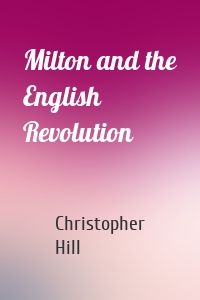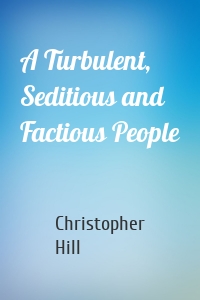Christopher Hill
3 кн.
Milton and the English Revolution
In this remarkable book Christopher Hill used the learning gathered in a lifetime’s study of seventeenth-century England to carry out a major reassessment of Milton as man, politician, poet, and religious thinker. The result is a Milton very different from most popular representations: instead of a gloomy, sexless “Puritan”, we have a dashingly thinker, branded with the contemporary reputation of a libertine.
| Автор | Christopher Hill |
A Turbulent, Seditious and Factious...
Preacher, Soldier, Rebel: Who was the author of Pilgrim’s Progress, one of the most influential books ever written? John Bunyan’s Pilgrim’s Progress is one of the most significant works of English literature. Translated into more than 200 languages, there was a time when almost every household in Britain was more likely to have a copy than the Bible. This classic biography of Bunyan by one of the leading historians of the 17th century offers a reassessment of the man in the context of his...
| Автор | Christopher Hill |
The Experience of Defeat
What lessons can we learn from the defeat of the seventeenth century English revolution? The failure of the English Revolution in 1660 provoked a variety of responses among radical clergy, intellectuals and writers, as they struggled to accept and account for their defeat in the light of divine providence. Christopher Hill’s close analysis of the writings of the Levellers and Diggers, of Fox and other important early Quakers suggests that the revolutionary beliefs and savage social judgments...
| Автор | Christopher Hill |




